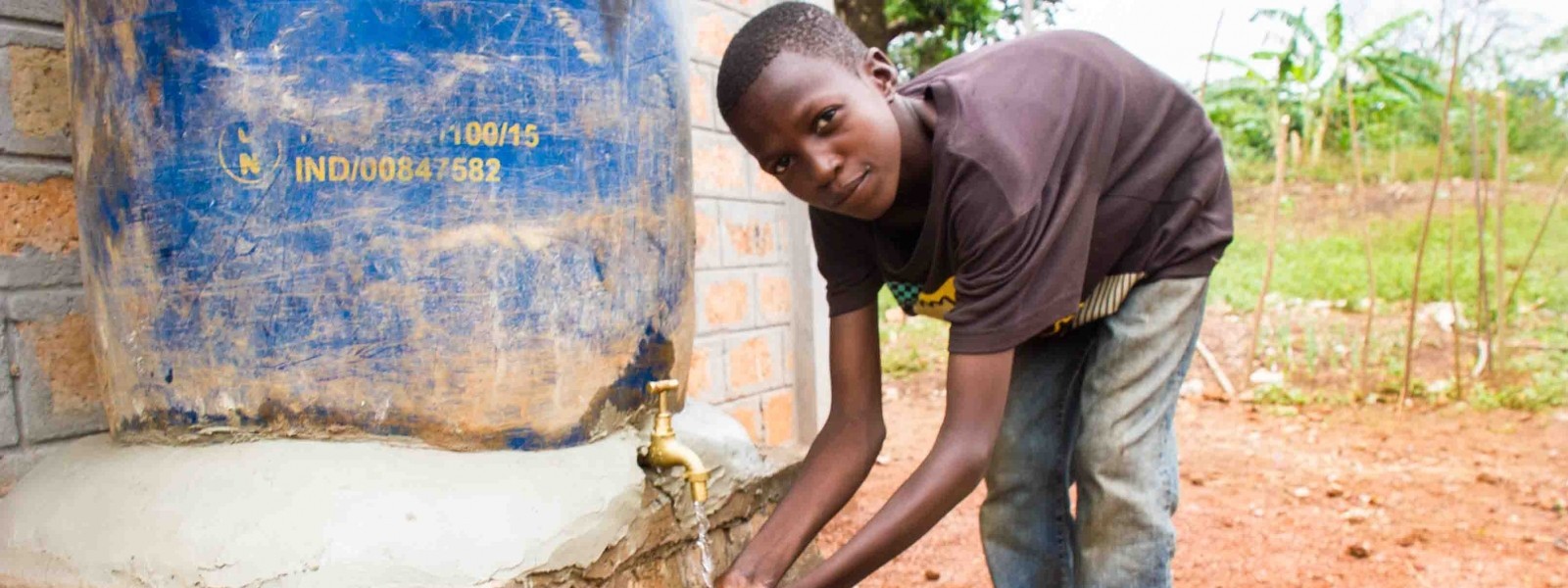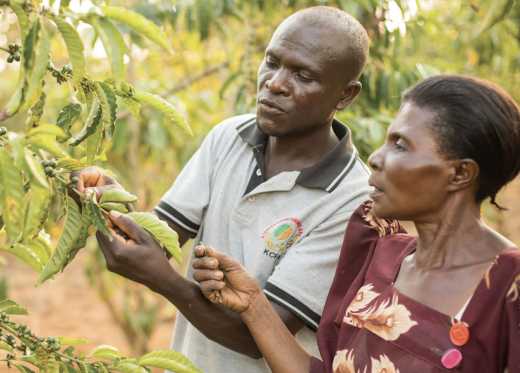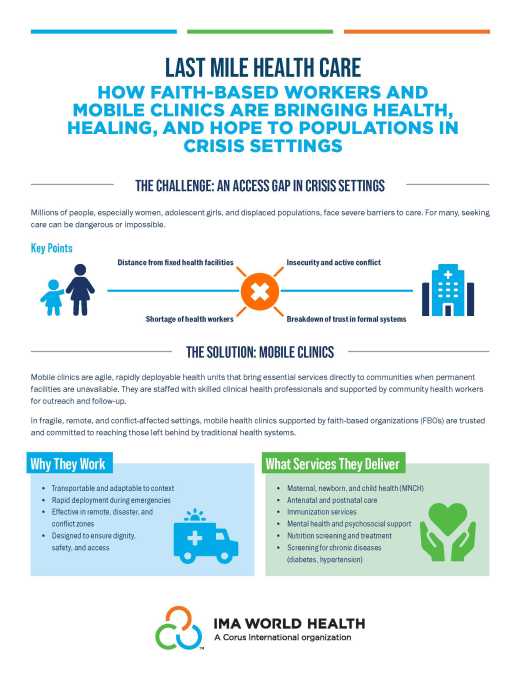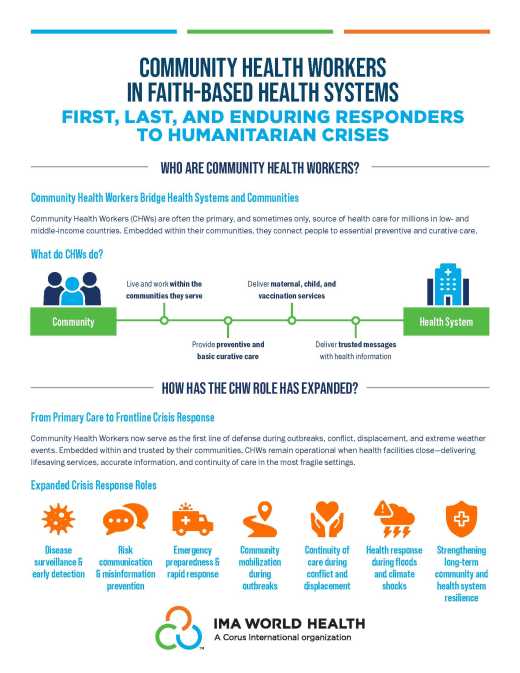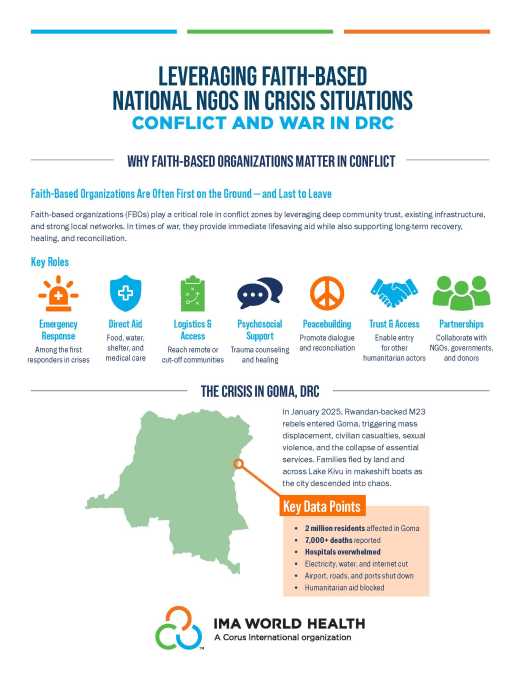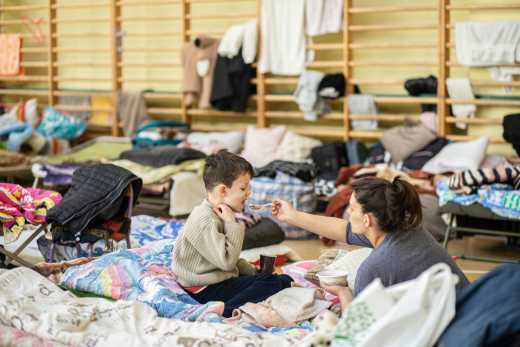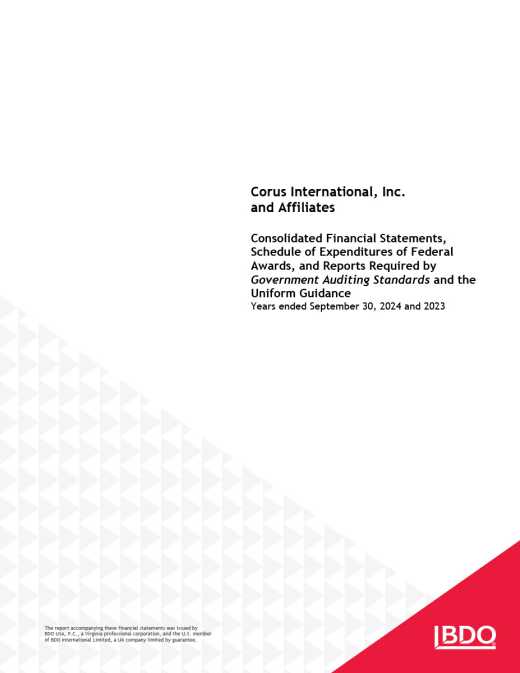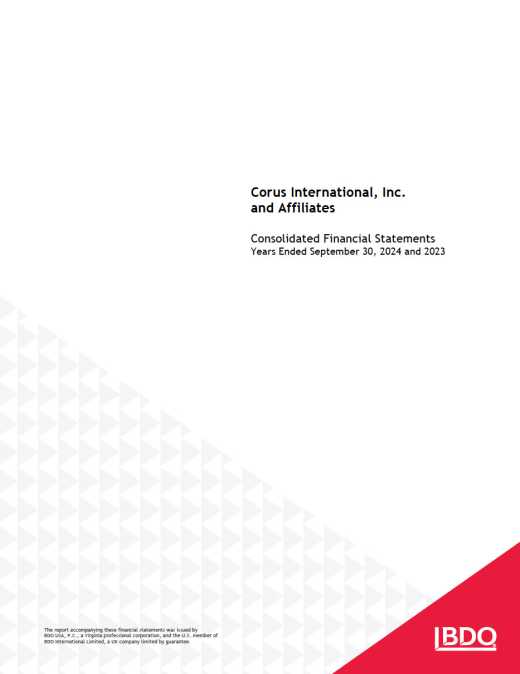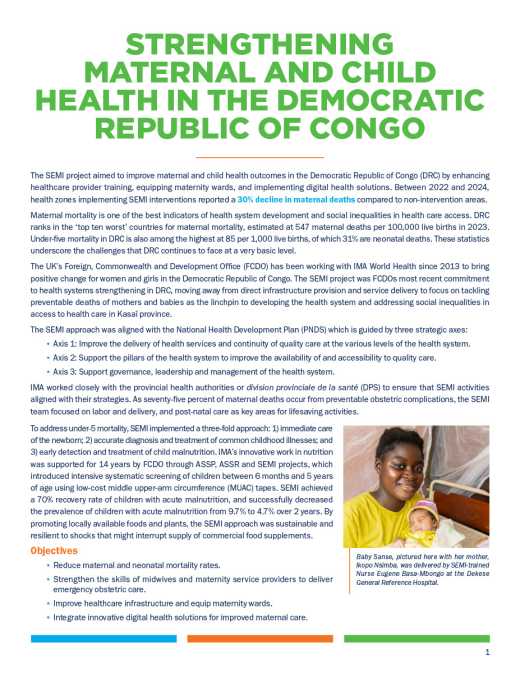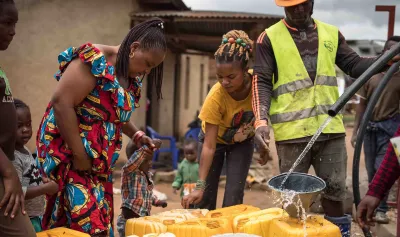Facing ongoing violent conflict, deadly disease outbreaks, chronic food insecurity and entrenched barriers to development, an estimated 19.6 million people are in need of humanitarian assistance in the Democratic Republic of the Congo (OCHA). For more than twenty years, IMA World Health has stood beside and partnered with Congolese ministries, health care facilities and providers, businesses, and communities to strengthen health systems, fight diseases, like Ebola and COVID-19, and improve overall health and wellbeing in the DRC.
WASH in the Congo
Over 30 million rural Congolese do not have access to clean, safe water, and nearly 30% do not have access to sanitation facilities (UNICEF). The country’s 3% population growth has only added to these numbers and further strained the water, sanitation, and hygiene (WASH) services and facilities that do exist in the Congo’s peri-urban and rural areas. This lack of access has dire health consequences for these communities, such as higher rates of disease transmission, malnutrition and sexual and violence against women and girls.
That is why IMA prioritizes a WASH systems strengthening approach modeled after evidence-based health systems strengthening (HSS) activities. IMA often integrates WASH activities into broader primary health care delivery and HSS projects. For example, in our FCDO-funded Access to Primary Health Care Project (ASSP), we helped health systems in the DRC expand access across 52 health zones to improved WASH services through the construction of 1,829 water and sanitation structures and a sanitary certification program for villages and schools. Through ASSP, 327,454 people gained access to safe water, and 304,974 people now have adequate sanitation.
Market-based WASH solutions
The longstanding provision of humanitarian assistance in the DRC has led to wide-spread reliance on international organizations providing sanitation and other WASH services for free. While traditional INGO approaches to improving WASH in communities, such as constructing latrines and promoting behavior change, have achieved incremental results, market-based solutions are needed to pave a sustainable, locally led path toward transformational change and resilience in the DRC’s WASH sector.
In this video, Dr. Larry Sthreshley, IMA’s DRC Country Director, describes the country’s current WASH issues, insights from IMA’s experience addressing them through integrated programming, and ideas for context-specific, market-based solutions that can transform the WASH sector in the Congo.


